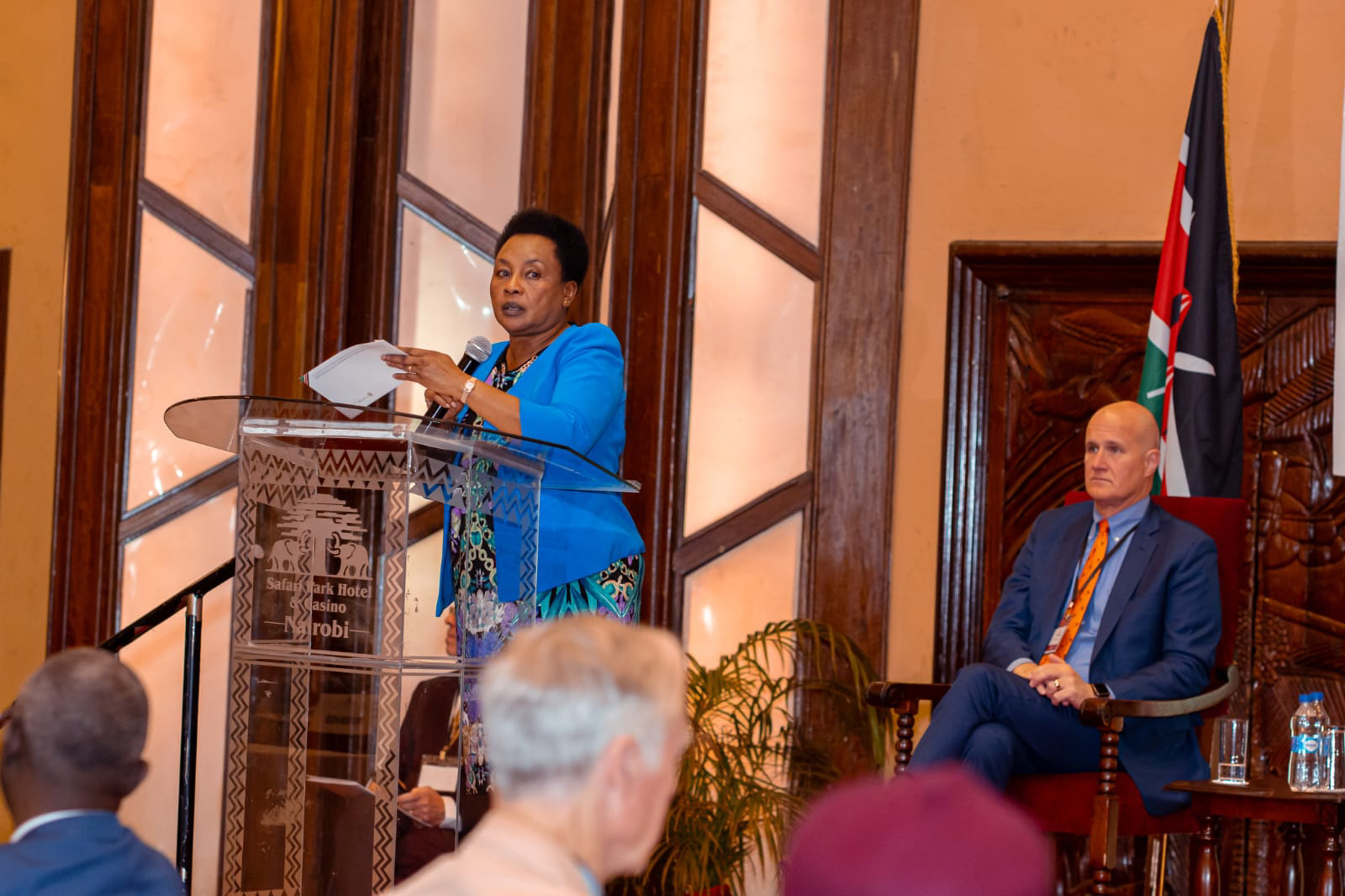KENYA'S FEED SECURITY AT RISK MONTHS AFTER DEVASTATING DROUGHT
Given Kenya’s reported 60% feed deficit by the Ministry of Agriculture and Livestock Development, the Association of Kenya Feeds Manufacturers (AKEFEMA), held its first ever AKEFEMA Feeds Exhibition and Conference (AFEC1) in Nairobi.
PHOTO: AKEFEMA Chairman, Joseph Karuri, addressing the media during AFEC1 event in Nairobi, July 17th, 2024
The event was aimed at finding solutions to the present feed scarcity ravaging the country and enhance livestock productivity in the East African region. The conference featured plenary sessions with key presentations in the morning, followed by concurrent workshops, all of which provided a comprehensive learning experience for attendees.
Speaking during the event held at Safari Park hotel, chief guest John Maina, Senior director from the State Department for Livestock Production noted that AFEC1 will facilitate knowledge exchange among industry stakeholders, addressing challenges related to remote livestock husbandry practices, animal breed quality, and the triple feed concerns of availability, quality, and cost.
Maina also called for concerted efforts among various stakeholders to ensure animal nutrition industry is fully tapped, leading to more animal feeds production, cheaper feeds prices and more efficiency in feeds production by embracing emerging innovations.
According to Ministry data, the livestock sector hugely contributes to Kenya’s GDP by employing over half of the country's labour force. Mr. Maina called on Kenyan manufacturers to ensure they make utmost use of local raw materials in their production process, noting that the decision would be significant in reducing animal feed prices and providing more job opportunities for Kenyans.
On his end, Mr. Joseph Karuri, animal nutritionist and Chairman of the AKEFEMA, asserted that East Africa is experiencing a demographic boom, with 70% of it's population ranking below the age of 35 years of age.
“Our work as food industry leaders is central to achieving food security, given that we are in the business of delivering animal proteins in the form of eggs, milk and meat to our people,” he underscored.
Mr. Karuri who boasts over 18 years in the animal nutrition industry, attributed the recent surge in animal feeds prices, to the recent drought that rocked the country in the preceding months, noting that more needs to be done to ensure feeds production is back on full gear.
Karuri called on partners and other relevant stakeholders in the Agriculture and Livestock production, to always anticipate such challenges, adapt to new realities, develop stronger supply chains and openly adopt emerging evidence based technologies.
“By embracing innovation, we can improve the nutritional quality of our feeds, reduce our environmental footprint, and ultimately contribute to enhanced food security in our region,” he concluded.
Mr. Paul Kamau, the Chief Executive Officer of AKEFEMA shared that the association currently has a membership of 120 registered feed miller's and associate members.
By his own account, AKEFEMA is mandated to promote profitable livestock farming in the country, through the production of quality animal feeds and enhancing a conducive environment for the feeds business.
“Our mission is to promote a vibrant business environment that draws member benefits through cooperation and coordination of all policy stakeholders and value chain actors, for delivery of quality feedstuffs and related services,” Mr. Kamau noted.
This far-reaching event comes months after Kenya launched a Multistakeholder Platform (MSP) to facilitate collaboration and address the sector's obstacles. The Kenya Multi-Stakeholder Platform (MSP) was officially launched by Halima Nenkare, the Director of Livestock Production in the Ministry of Agriculture and Livestock Development, with the aim to foster coordination in the value chain and address challenges faced by the livestock sector.
Senior director John Maina capped off by painting an optimistic and vibrant picture for the animal nutrition industry, calling upon farmers to persist in their pursuits, confident that the government will provide abundant market for their feeds and provide proper education to farmers, to ensure Kenya addresses the existing feeds deficit.





Comments
Post a Comment